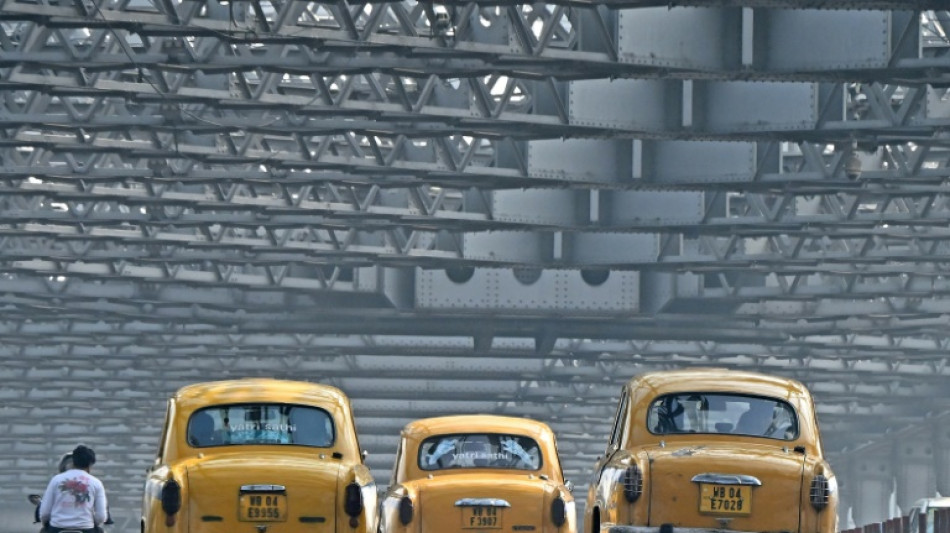
-
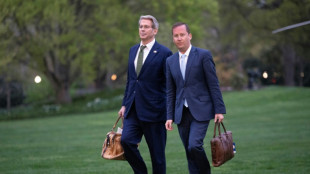 Trump names close political aide as ambassador to India
Trump names close political aide as ambassador to India
-
Fraser-Pryce aiming to end career in 'magnificent way' at Tokyo worlds

-
 Multiple tourists killed in New York state bus crash
Multiple tourists killed in New York state bus crash
-
Gauff looks to future with bold coaching change before US Open

-
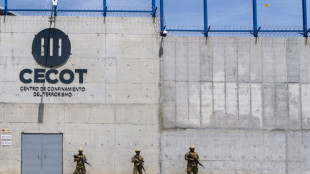 Salvadoran man at center of Trump deportations row freed
Salvadoran man at center of Trump deportations row freed
-
Top-ranked Sabalenka seeks rare US Open repeat

-
 Chelsea thrash West Ham to pile pressure on former boss Potter
Chelsea thrash West Ham to pile pressure on former boss Potter
-
Kane toasts 'instant connection' with Diaz after Bayern romp
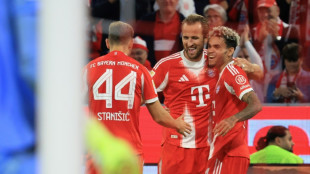
-
 Ruiz goal gives rusty PSG narrow win over Angers in Ligue 1
Ruiz goal gives rusty PSG narrow win over Angers in Ligue 1
-
Salvador man at center of Trump deportations row freed
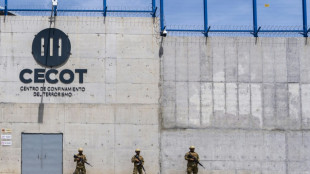
-
 Kane hits hat trick as Bayern thump Leipzig in Bundesliga opener
Kane hits hat trick as Bayern thump Leipzig in Bundesliga opener
-
England begin bid for Women's Rugby World Cup by thrashing United States

-
 Hopes dim for Putin-Zelensky peace summit
Hopes dim for Putin-Zelensky peace summit
-
Sinner in race for fitness with US Open title defense looms

-
 Jefferson-Wooden cements Tokyo sprint favourite status with Brussels win
Jefferson-Wooden cements Tokyo sprint favourite status with Brussels win
-
Dutch foreign minister resigns over Israel sanctions

-
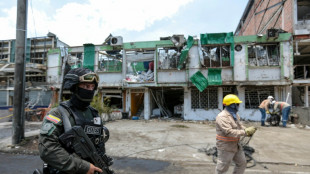 Colombia reels after twin guerrilla attacks kill 19
Colombia reels after twin guerrilla attacks kill 19
-
'Zero doubts' as Jefferson-Wooden scorches to Brussels 100m win

-
 Fleetwood ties Henley for PGA Tour Championship lead
Fleetwood ties Henley for PGA Tour Championship lead
-
Detained Chileans freed two days after football brawl in Argentina
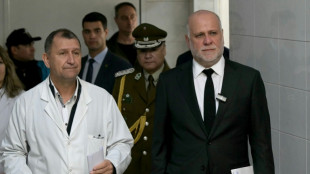
-
 Jefferson-Wooden scorches to Brussels Diamond League 100m win
Jefferson-Wooden scorches to Brussels Diamond League 100m win
-
Trump says 2026 World Cup draw set for December in Washington

-
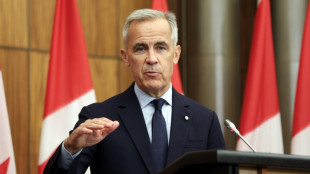 Canada removing tariffs on US goods compliant with free trade deal
Canada removing tariffs on US goods compliant with free trade deal
-
US Fed chair opens door to rate cut as Trump steps up pressure
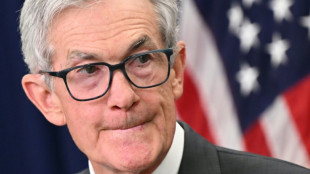
-
 Boko Haram denies Nigerien army claim to have killed leader
Boko Haram denies Nigerien army claim to have killed leader
-
Ukrainian refuses German extradition in Nord Stream sabotage case

-
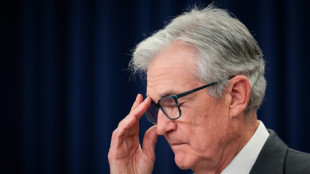 Wall Street rallies, dollar drops as Fed chief fuels rate cut hopes
Wall Street rallies, dollar drops as Fed chief fuels rate cut hopes
-
Spurs boss Frank only wants committed signings after Eze snub

-
 German, French post offices restrict packages to US over tariffs
German, French post offices restrict packages to US over tariffs
-
Australian sprinter Asfoora rebounds to land Nunthorpe Stakes
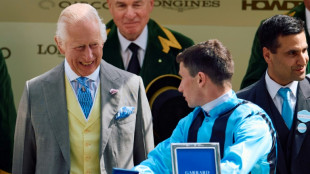
-
 Embattled Bordeaux winemakers see Trump's tariffs as latest blow
Embattled Bordeaux winemakers see Trump's tariffs as latest blow
-
Russia rejects Zelensky meeting as diplomatic tension simmers
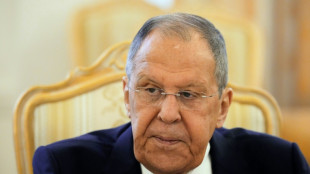
-
 UN declares famine in Gaza, Israel rejects 'lie'
UN declares famine in Gaza, Israel rejects 'lie'
-
FBI raids home of outspoken Trump critic John Bolton
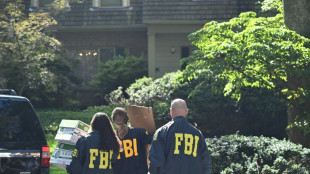
-
 Nuno 'worried' for job over relationship with Forest owner
Nuno 'worried' for job over relationship with Forest owner
-
Iran, Europeans to meet as snapback sanctions loom
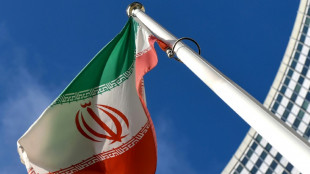
-
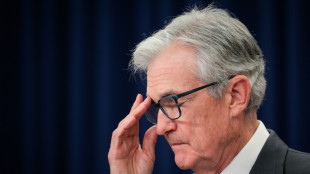 Wall Street rallies as Fed chief fuels rate cut hopes
Wall Street rallies as Fed chief fuels rate cut hopes
-
Eze move a sign of Arsenal's 'ambition', says Arteta

-
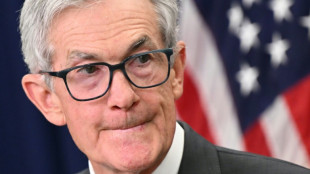 US Fed chair leaves door open to rate cut, facing down Trump pressure
US Fed chair leaves door open to rate cut, facing down Trump pressure
-
Spain's deadly wildfires ignite political blame game

-
 Man Utd outcasts could return, says Amorim
Man Utd outcasts could return, says Amorim
-
Rabiot-Rowe altercation a 'bar fight', says De Zerbi

-
 Fit-again Rodri still 'best in the world' for Guardiola
Fit-again Rodri still 'best in the world' for Guardiola
-
TikTok's UK content moderation jobs at risk in AI shift

-
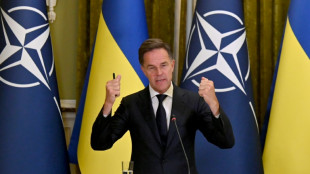 NATO chief calls for 'robust security guarantees' on Ukraine visit
NATO chief calls for 'robust security guarantees' on Ukraine visit
-
Bayeux Tapestry not too fragile to move to UK, French official says

-
 UN declares famine in Gaza
UN declares famine in Gaza
-
Newcastle can't win in Isak stand-off, says Howe

-
 Doubts over Niger claim that a Boko Haram leader killed
Doubts over Niger claim that a Boko Haram leader killed
-
Teenager Wanner signs with Eindhoven from Bayern


End of the road for Kolkata's beloved yellow taxis
Kolkata locals cherish their city's past, which is why many in the one-time Indian capital are mourning a vanishing emblem of its faded grandeur: a hulking and noisy fleet of stately yellow taxis.
The snub-nosed Hindustan Ambassador, first rolling off the assembly line in the 1950s with a design that barely changed in the decades since, once ruled India's potholed streets.
Nowadays it is rarely spotted outside Kolkata, where it serves as the backbone of the metropolitan cab fleet and a readily recognisable symbol of the eastern city's identity.
But numbers are dwindling fast, and a court ruling means those that remain -- lumbering but still sturdy -- will be forced off the roads entirely in the next three years.
"I love my car like my son," Kailash Sahani, who has sat behind the wheel of an Ambassador cab for the past four decades, told AFP.
"It's a simple car -- no electronics, no frills," the 70-year-old added. "It's unbelievable how much things have changed... The end of these taxi cars also marks our end."
Sahani is among thousands of Kolkata cabbies relinquishing their vehicles in line with tough emissions standards introduced in 2009 to ease the city's endemic smog problem.
Only around 2,500 Ambassador taxis were still working at the start of this year, down from 7,000 a year earlier, according to Bengal Taxi Association figures.
Another 1,000 will be retired this year, and West Bengal state transport minister Snehasis Chakraborty told AFP that the remainder will be gone by the end of 2027.
"The car is strong. Parts and maintenance are cheap and if it breaks down, it's easy to find a mechanic," said Bengal Taxi Association spokesman Sanjeeb Roy.
Their disappearance, he added, "represents all that's wrong with India's changing economy".
- Litany of defects -
The Hindustan Ambassador was the cornerstone of India's automotive industry for decades from its 1957 debut at a factory on Kolkata's northern outskirts.
Modelled on a similarly regal sedan car from Britain's now long-defunct Morris Motors, the car was a triumphant achievement of industry in the first years of India's history as an independent nation.
A deluxe model, its windows adorned with lace curtains, was for years the main means of conveyance for government ministers and captains of industry.
But the car's shortcomings also served as a reminder of deep structural problems with the quasi-socialist economic system that prevailed in India at the time.
Buyers sat on wait lists for years because pervasive red tape stopped Hindustan Motors from raising production to meet demand, while a near-monopoly on sales left no incentive to maintain quality standards.
That gave rise to an oft-repeated joke about the litany of defects found in the average "Amby": the only thing in the car that doesn't make a sound is its horn.
Market reforms from the 1980s onwards saw the Ambassador muscled off Indian roads by more modern vehicles, and production was halted entirely in 2014 after years of flatlining demand.
- 'Get with the times' -
Kolkata, the headquarters of Hindustan Motors, is the last place where the cars are seen in any great number -- a reminder of the tethers binding the city to India's past.
Grand public buildings evoke the immense riches that flowed through the city's tree-lined boulevards back when it was the second-largest city in the British Empire, after London.
Nobel laureate poet and polymath Rabindranath Tagore was born and died in Kolkata, where the national anthem he composed was sung for the first time during India's long independence struggle.
The city is also renowned for its thrumming nightlife, with crowded and dimly lit restaurants serving up chicken Kiev alongside the same suite of old-world European staples that have been listed on their menus since the late colonial era.
But its importance has shrunk dramatically since that heyday, first with the relocation of India's capital to Delhi in 1911 and then with Mumbai's ascension as the country's most important commercial hub.
Many of Kolkata's younger generations have left in search of better opportunities elsewhere, giving it a median age at least six years older than other big Indian cities, according to census data.
The city's skewed demographics prompted its pre-eminent novelist Amit Chaudhuri to once quip that while Delhi was for seeking power and Mumbai was for chasing riches, Kolkata was for visiting one's parents.
"People like me are under pressure to get with the times," retired Kolkata schoolteacher Utpal Basu, 75, told AFP.
"Old cars go, new ones come," he added. "But it will break my heart when the city loses another icon."
C.Koch--VB

